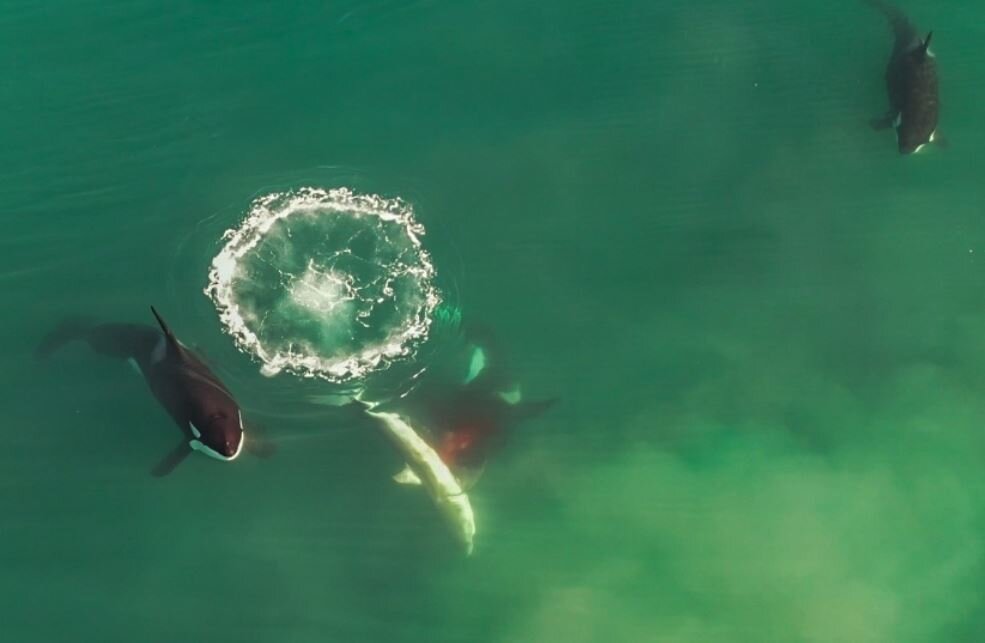After the marine mammal was filmed killing one of the largest sea predators in the world, researchers have now published further evidence backing up the belief that orcas hunt great white sharks.
In footage from a helicopter and a drone that served as research for a paper published this week, a pod of killer whales is shown pursuing sharks for an hour off Mossel Bay, a port city in the southern Western Cape region.
“This behavior has never been witnessed in detail before, and certainly never from the air,” said lead author Alison Towner, a shark scientist at Marine Dynamics Academy in Gansbaai, South Africa.
In one video, five orcas are shown pursuing and killing a great white; three other orcas are thought to have died from mauling during the hunt.
“Killer whales are highly intelligent and social animals. Their group hunting methods make them incredibly effective predators,” Simon Elwen, a marine mammal specialist and study co-author, said in a statement released Tuesday.
Although the ocean’s top predator, orcas, are known to prey on other shark species, there has previously been little proof that they have attacked great white sharks.
The study didn’t talk about the reasons for the behavior.
Only one of the whales had a history of attacking white sharks; the other four had not.
Since previous research had shown that the black and white animals could communicate with one another through “cultural transmission,” the authors concluded that this indicated the practice was becoming more widespread.
According to a study published in the academic journal Ecology, sharks vanished from the area after the attack, with only one great white being sighted over the following 45 days.
According to scientists, research demonstrated that sharks could respond to stress by taking flight and may have broader implications.
Marine researcher Alison Kock of South African National Parks said that in prior recorded examples, the creatures ultimately ended up leaving former important areas, with ramifications for the environment and shark-related tourism.







